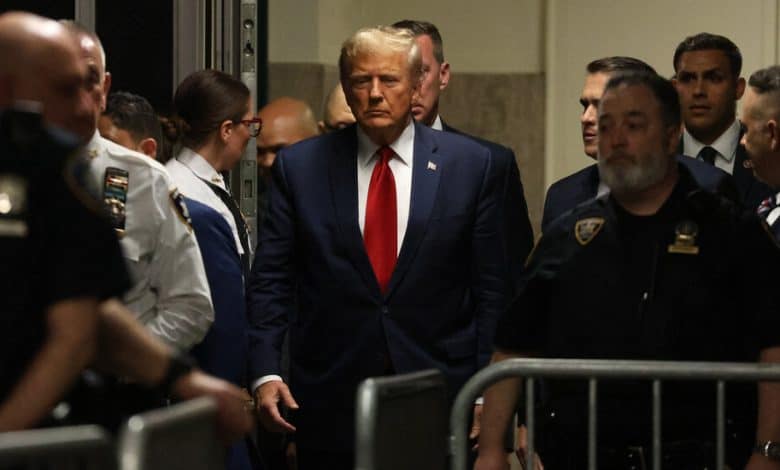Trial Will Test Trump’s Limits of Reaping Political Gain From Legal Woes

For all their bluster, nobody in Donald J. Trump’s political inner circle actually thinks a criminal conviction will help him with the independent voters and suburban women who lost him the presidency in 2020.
But since Mr. Trump was first indicted, he and his team have looked toward securing the nomination as a vital imperative. And as he is set to become the first former United States president to stand trial, some of those advisers — who long ago realized that his freedom is intertwined with the outcome of the 2024 election — see a silver lining in the calendar.
On Thursday, a New York judge set a March 25 start date for a trial on charges brought by the Manhattan district attorney, Alvin L. Bragg, accusing Mr. Trump of falsifying business records to cover up reimbursements for a hush-money payment made in 2016 to a porn star who said she had a past affair with him.
Legal observers have commented that, compared with charges Mr. Trump faces for hanging onto sensitive national security documents and obstructing efforts to retrieve them, or with the charges accusing him of conspiring to defraud the United States in trying to overturn an election, the hush-money case seems far less weighty.
And those hush-money charges represent a low-level felony, and comparatively less potential prison time.
“There is absolutely no crime in this lawless case,” said Steven Cheung, a spokesman for Mr. Trump, insisting that it is an effort to interfere with the election and that Mr. Bragg should “instead be focused on cleaning up New York” and on local crime.
We are having trouble retrieving the article content.
Please enable JavaScript in your browser settings.
Thank you for your patience while we verify access. If you are in Reader mode please exit and log into your Times account, or subscribe for all of The Times.
Thank you for your patience while we verify access.
Already a subscriber? Log in.
Want all of The Times? Subscribe.
